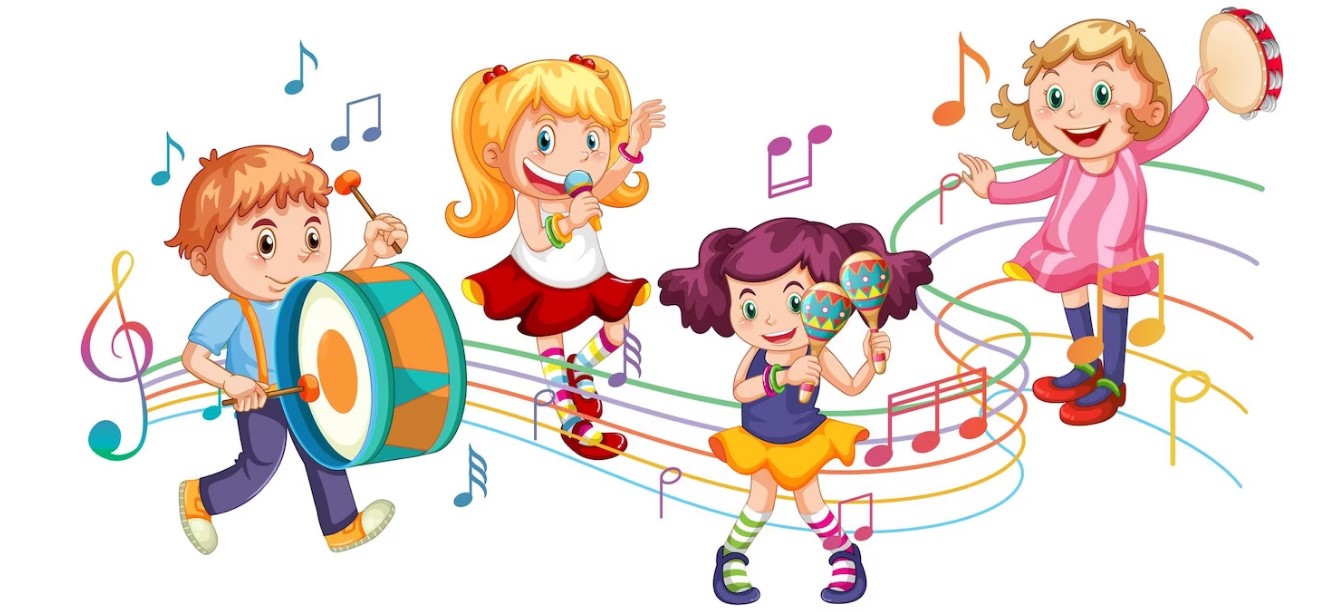In early childhood every experience can play a crucial role in shaping social and emotional development. Among the various enriching activities available music stands out as a powerful tool with immense potential. Whether through interactive sessions in physical classrooms or the convenience of online music classes engaging with music offers a multitude of benefits for young children. We will explore the social and emotional advantages that music can bring to early childhood development. From fostering social interactions to aiding emotional expression with regulation music has a profound impact on the growth of children during their formative years.
The Power of Music in Early Childhood
In the early stages of life children exhibit a natural inclination towards music by making it a potent force for their overall development. Music has a unique ability to engage young minds, stimulate their cognitive abilities and ignite their creativity. When children are exposed to music whether through singing, playing instruments or simply listening to melodies, it sparks a series of neurological connections that enhance their cognitive functions. Music encourages active participation with others laying the foundation for essential social skills.
As children sing together, dance to rhythms or engage in musical games they learn the value of cooperation, teamwork and communication. These early experiences create a sense of community belonging to foster positive social interactions that benefit them throughout their lives. Through the power of music early childhood becomes an exciting period of exploration of growth unlocking a world of endless possibilities for young learners. Embracing music can further amplify these benefits offering convenient and enriching opportunities for children to discover the wonders of music while developing their social and emotional intelligence.
Social Benefits of Music in Early Childhood
The social benefits of music in early childhood are vast. It plays a pivotal role in shaping the interpersonal skills of children with emotional intelligence. One of the most evident advantages of music is its ability to promote social interaction among young learners. Whether in a group setting such as a music class or a family gathering or even during online guitar classes for beginners, children naturally come together to share the joy of making music. Engaging in musical activities like singing, dancing or playing instruments fosters a sense of camaraderie encouraging children to communicate, cooperate and collaborate with their peers. Music acts as a unifying force creating a sense of community and belonging.
Participating in group musical experiences allows children to feel connected to others creating bonds that transcend age, language or cultural barriers. This sense of belonging enhances their self esteem and promotes positive social behaviors including empathy and understanding. Through exposure to music with varying emotional themes children also gain a deeper understanding of emotions and feelings. They learn to identify and express their own emotions as well as to empathize with the emotions of others. As they sing songs that convey happiness, sadness or excitement they become more attuned to the rich tapestry of human emotions fostering a greater sense of emotional intelligence.
Emotional Benefits of Music in Early Childhood
The emotional benefits of music in early childhood are profound offering young learners a powerful avenue for understanding, expressing and regulating their emotions. Music serves as a safe and non threatening platform for children to explore their feelings even before they can articulate them verbally. As they listen to melodies, sing along or play instruments they experience a wide range of emotions from joy and excitement to tranquility and contemplation. These emotional experiences not only enrich their musical journey but also contribute significantly to their overall emotional development.
One of the primary ways in which music benefits children emotionally is by helping them regulate their emotions effectively. The soothing and rhythmic nature of music has a calming effect on young minds providing stability during moments of stress or anxiety. The familiarity of familiar tunes to the repetition of musical patterns offer a sense of predictability which can be particularly reassuring for children in challenging situations.
Mastering musical skills to achieve milestones in music learning can be a tremendous source of pride and confidence for children. As they learn to play an instrument, sing in tune or create their musical compositions they experience a sense of accomplishment that boosts their self esteem. This newfound confidence extends beyond the realm of music positively impacting other aspects of their lives to encourage them to take on new challenges with greater self assurance.
Music as a Tool for Emotional Development
Music serves as a powerful tool for fostering emotional development in early childhood by offering a myriad of benefits that go beyond just entertainment. Its unique ability to evoke to convey emotions makes it a valuable resource for helping children explore to understand their feelings. Whether through listening to music or actively participating in musical activities young learners can develop essential emotional skills that will serve them throughout their lives.
Using music as a tool for emotional development involves a range of activities that encourage children to engage with their emotions in a constructive manner. Introducing them to songs with diverse emotional themes allows them to identify different feelings expanding their emotional vocabulary. This practice enables children to communicate their emotions more effectively to help caregivers educators understand their needs better.
Conclusion
Incorporating music in early childhood settings through online classes can significantly enhance development of children. By fostering a love for music to provide ample opportunities for creative expression parents and educators lay the foundation for a well rounded and enriching educational experience. Embracing the power of music early childhood settings become vibrant spaces where children flourish intellectually, socially and emotionally setting them on a path towards lifelong learning and personal growth.



